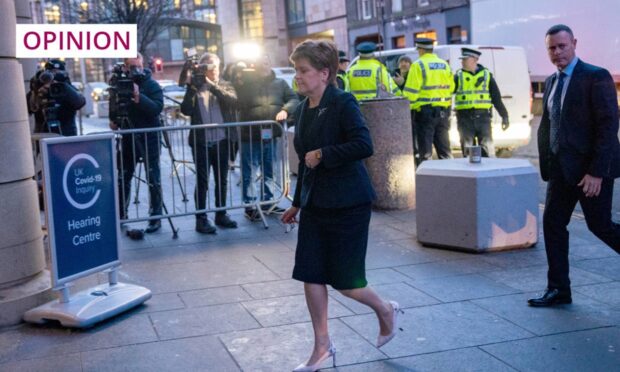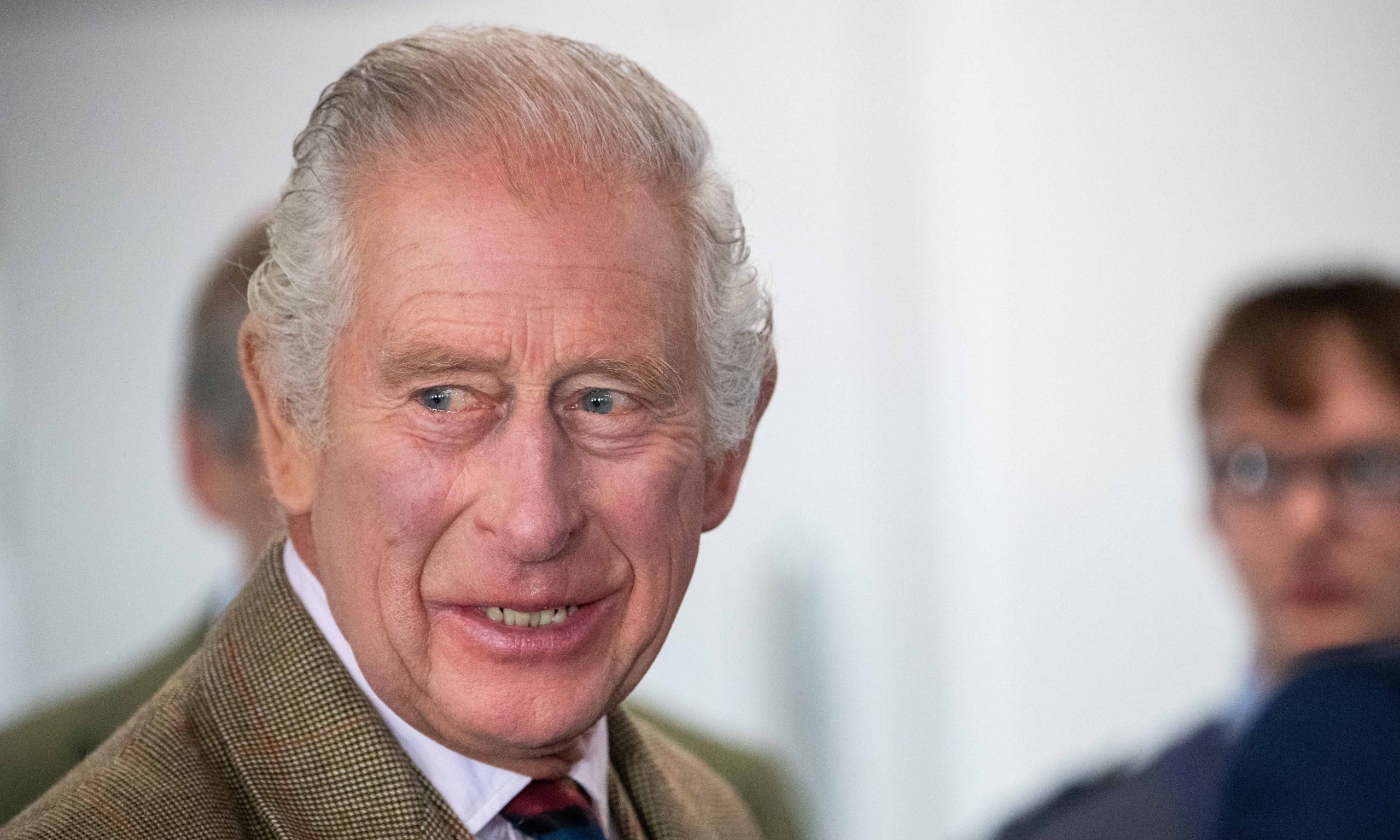I watched Robert the Bruce on his wedding night – in a movie, that is – and I thought about royal privacy over the years.
Especially after news about the health problems of the King and Kate.
We pored over a surprising level of medical transparency.
Royals used to be shielded from awkward questions; also by media and public deference, which would be viewed as decidedly unhealthy today.
The public deserve the right to know what the royals are up to because they are footing much of their bill – and what Scottish ministers and officials are really saying in their WhatsApps, for that matter.
For many, “bedding procedures” at this time of year are nothing more than deciding what to plant in our garden borders for spring.
Bedding procedures for Bruce’s nuptials took on a whole different meaning – as he and second wife, Elizabeth de Burgh, discovered when they skipped off to bed on their wedding night. They were accompanied by a bawdy entourage of drunken onlookers or “witnesses”, who trooped along behind them – to confirm the consummation with their own eyes, as was the practice for European royals.
Luckily for some medieval kings and queens, the “audience” drew curtains discreetly around the marital bed and listened in, or left the room after delivering the couple to the door (as with Bruce, according to the film Outlaw King). It was the done thing for total transparency around matters of state: nothing hidden from sight.
So, I think we should encourage royal openness on sensitive matters which are in the public interest. (But not wedding nights – heaven forbid.)
Healthcare isn’t an even playing field
Like King Charles, I suffered a period of prostate peril, but mine was cancerous; caught early, luckily.
I applaud him for raising awareness. But I can’t help thinking that it’s easier for the rich and privileged because they enjoy private healthcare on tap.
Even among the public at large, there has been a surge towards private health insurance due to the horrors of NHS waiting lists, which exploded during the Covid pandemic.
But most are not so lucky and have to take their chances. So, it means there is a danger that some who need urgent screening might give up before they even start. They must never lose hope: keep knocking on the door.
The system is ponderous, but I know from personal experience that frontline medics are doing their best to clear the backlog.
During the worst days of the pandemic, the daily mantra “protect the NHS” became a familiar exhortation from political leaders – but also a curse, ultimately. Countless sufferers of other serious diseases stayed away and died while protecting the NHS.
This scandal surfaced again as the UK Covid inquiry took evidence from the Scottish Government.
Sturgeon presented a mirage of statesmanlike caution
What became apparent at the inquiry was that transparency was not a cloak which sat comfortably on the shoulders of some Scottish officials and ministers. The deleted WhatsApps, for example.
Self-serving ministers and aides are the last people to trust over deciding which messages remain in the public domain. It’s a phoney kind of transparency.
At the inquiry last week, Nicola Sturgeon clung to the notion that WhatsApps weren’t used for decision making, which was not totally borne out by previous evidence. But deleted off-the-cuff flippancy and abusive messages are crucial in revealing much about a person’s character and possible underhand motives – in the midst of the biggest crisis of our age.
Such as claims that the former first minister’s closest allies considered manipulating the pandemic to further independence – and even stage-managing “rammies” with Westminster while people died.
I always had an uncomfortable feeling as I watched the grim pantomime that was Sturgeon’s daily Covid TV appearances.
Grim because the statistics and lockdowns were awful. Pantomime because I always suspected Sturgeon was using it as a platform to promote an illusion of how much better it would be if she was running an independent Scotland.
One day a step ahead of Westminster to show decisiveness – the next, one step behind to project a mirage of statesmanlike caution.
We had a lucky escape because, as her leadership turned to dust, she confessed her public image was bad for Scotland.
High time duckers and divers are held to account
It’s often said in politics that perception is reality. Now, perception over destroyed Scottish Government WhatsApps mirrors a war movie where they burned the secret papers before tanks arrived.
Hardliners have faith in Yousaf, Sturgeon and Co, but the voters who really matter – moderates and don’t-knows – must be appalled
Humza Yousaf has been trotting out that weary old nonsense about how “lessons will be learned” again. Which means the Scottish Government can consign painful inquiry findings to the broom cupboard.
Hardliners have faith in Yousaf, Sturgeon and Co, but the voters who really matter – moderates and don’t-knows – must be appalled.
It’s time the duckers and divers are held to account personally, once and for all, by the Covid inquiry. For the sake of clear and honest public transparency – not the fantasy transparency we are fed.
David Knight is the long-serving former deputy editor of The Press and Journal



Conversation